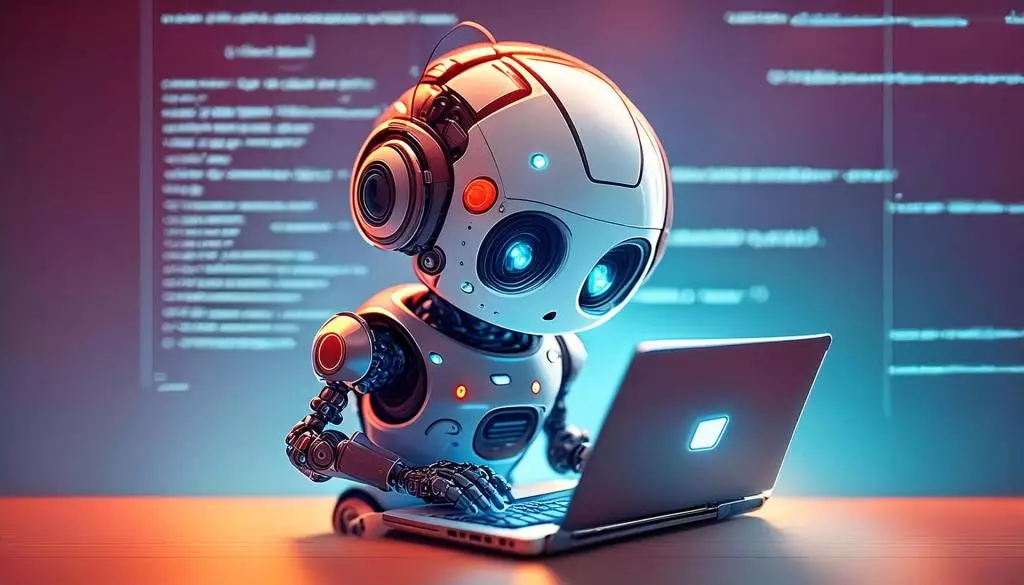The landscape of software development is undergoing a transformative shift, primarily fueled by advancements in artificial intelligence. One of the most revolutionary trends in this domain is the emergence of AI-driven coding platforms, which are not merely assistive tools but rapidly evolving entities capable of taking on complex tasks autonomously. The announcement of Google’s free beta version of Jules, an AI coding agent, is a significant milestone in this revolution. By positioning itself at the forefront of this technological breakthrough, Google aims to redefine the coding experience as we know it.
Understanding Jules: A New Paradigm in Development
Jules, developed by Google, promises to lighten the load of software engineers. This autonomous agent does not merely assist; it operates seamlessly in the background, enabling developers to focus on more critical tasks. During the Google I/O event, Josh Woodward, vice president of Google Labs, highlighted Jules’ capabilities in handling tasks like bug fixing and test creation without requiring constant supervision. This asynchronous work model represents a paradigm shift where tasks can be delegated, much like a collaborative partner. Developers are empowered to think creatively, while routine challenges are handled efficiently by Jules.
While developers have long embraced various coding tools, Jules stands out for its innovative backend operations. It integrates with GitHub, thus positioning itself in a larger ecosystem of coding solutions, reinforcing the collaborative spirit that is essential in the software development community. As the infrastructure of coding evolves, so too does the necessity to advance beyond traditional programming methods.
The Competition Heats Up: Codex and GitHub Copilot
Jules isn’t venturing into this space alone; it faces stiff competition from notable players like OpenAI’s Codex. Initially designed for code completion, Codex has evolved into a dynamic coding agent that not only facilitates code creation but also tackles bug fixes and responds to queries about codebases in a confined environment. This evolution symbolizes the broader trend in which various tech companies are racing to develop their coding agents, each striving to capture the interests of developers by making the coding process as seamless as possible.
GitHub’s Copilot, a product of Microsoft’s deep integration with OpenAI, has also expanded its repertoire to offer asynchronous coding capabilities, similar to those of Jules and Codex. This arms race within the realm of coding agents has ignited excitement on social media platforms, revealing an eager willingness among developers for more autonomous coding solutions.
Vibe Coding: Redefining the Future
The concept of “vibe coding” is gaining traction, reflecting a shift in how applications are generated. This approach leans heavily on prompting rather than traditional hard coding. With the growing trend of relying on AI for the initial stages of code development, the role of human coders morphs into that of interpreters and collaborators. Instead of outlining intricate coding structures, developers now articulate their needs and challenges to AI agents that dynamically generate solutions.
With big tech giants throwing their hats into the ring, the implications for the software industry are profound. Companies like Google and OpenAI are not just making tools; they are reshaping the entire coding landscape. Google’s suite of products, including Code Assist and Firebase, positions it uniquely within this competitive arena. Firebase, in particular, grants opportunities for non-coders to engage in development, making AI solutions accessible to a broader audience.
Innovative Pathways: Google’s Approach
Google’s vision extends beyond just programming assistance. By launching Firebase, Google targets a diverse demographic eager to experiment with AI-enabled application development. Unlike Jules, which targets seasoned developers, Firebase democratizes coding capabilities, allowing novices to build applications tailored to their needs. Jeanine Banks, a prominent figure at Google, articulated this strategy well, indicating that Google’s tools are designed to enable users at all levels to explore their ideas efficiently.
Indeed, the introduction of AI tools that simplify coding processes encourages a more inclusive environment for innovation. As barriers to entry shrink, we may witness a surge of creativity across the board, with industries previously untouched by technology beginning to harness the power of AI-driven coding solutions.
The convergence of strategic innovations in coding platforms, combined with an evolving mind-set towards automation and AI, signals that we are on the cusp of a new epoch in software development. The future landscape will be defined by collaborations between humans and machines, ultimately fostering creativity, efficiency, and a redefined coding experience that embraces both human intuition and AI efficiency.

